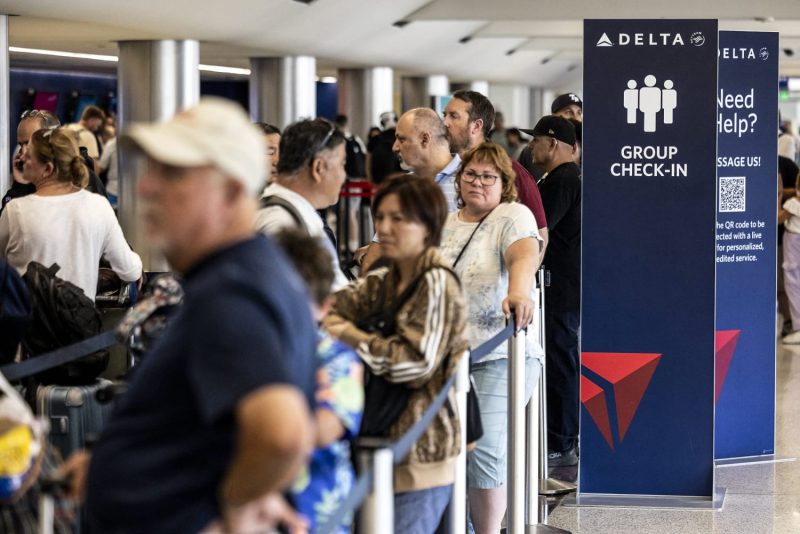Delta Cancels Hundreds More Flights as Its Recovery from Global CrowdStrike, Microsoft Outage Lags
In recent days, Delta Air Lines has faced significant challenges as it continues to grapple with the aftermath of a global CrowdStrike and Microsoft outage that have hampered its operations. The airline has been forced to cancel hundreds more flights, frustrating passengers and highlighting the deep impact of such technology disruptions on the aviation industry.
Delta Air Lines, like many other major companies, relies heavily on advanced technology systems to manage its operations smoothly. The recent global CrowdStrike and Microsoft outage not only affected Delta but also numerous other businesses worldwide, triggering widespread disruptions and delays.
The ripple effects of the outage have been keenly felt in the aviation sector, where any disruption can quickly snowball into significant delays and cancellations. Delta has been working around the clock to restore normalcy to its operations, but the process has been slower than anticipated, leading to the continued cancellation of hundreds of flights.
Passengers have been left stranded, with many facing long wait times and uncertainty about their travel plans. The frustration and inconvenience caused by the flight cancellations have underscored the vulnerability of the aviation industry to such technological glitches and highlighted the need for robust contingency plans and backup systems.
Delta Air Lines has apologized to affected passengers and offered rebooking options, but the lingering impact of the outage on its operations serves as a stark reminder of the interconnected nature of modern air travel. As airlines increasingly rely on technology to streamline their processes and enhance passenger experience, they also become more susceptible to disruptions that can have far-reaching consequences.
Moving forward, Delta and other airlines are likely to invest more heavily in cybersecurity and redundancy measures to mitigate the risks posed by global outages and ensure smoother operations in the face of unforeseen challenges. The airline industry’s reliance on technology is set to grow further, making it imperative for companies to prioritize resilience and adaptability in the face of evolving threats.
The recent events have brought to the forefront the pressing need for greater collaboration and coordination among airlines, technology providers, and regulatory bodies to strengthen the industry’s resilience to cyber threats and global outages. By working together to enhance cybersecurity measures, improve disaster recovery protocols, and bolster communication channels, the aviation sector can better prepare for and mitigate the impact of future disruptions.
As Delta Air Lines continues to navigate the fallout from the global CrowdStrike and Microsoft outage, it serves as a cautionary tale for the industry at large. The ability to adapt swiftly to unforeseen challenges and implement effective contingency plans will be crucial for airlines to maintain operational stability in an increasingly interconnected and technologically reliant world.



























